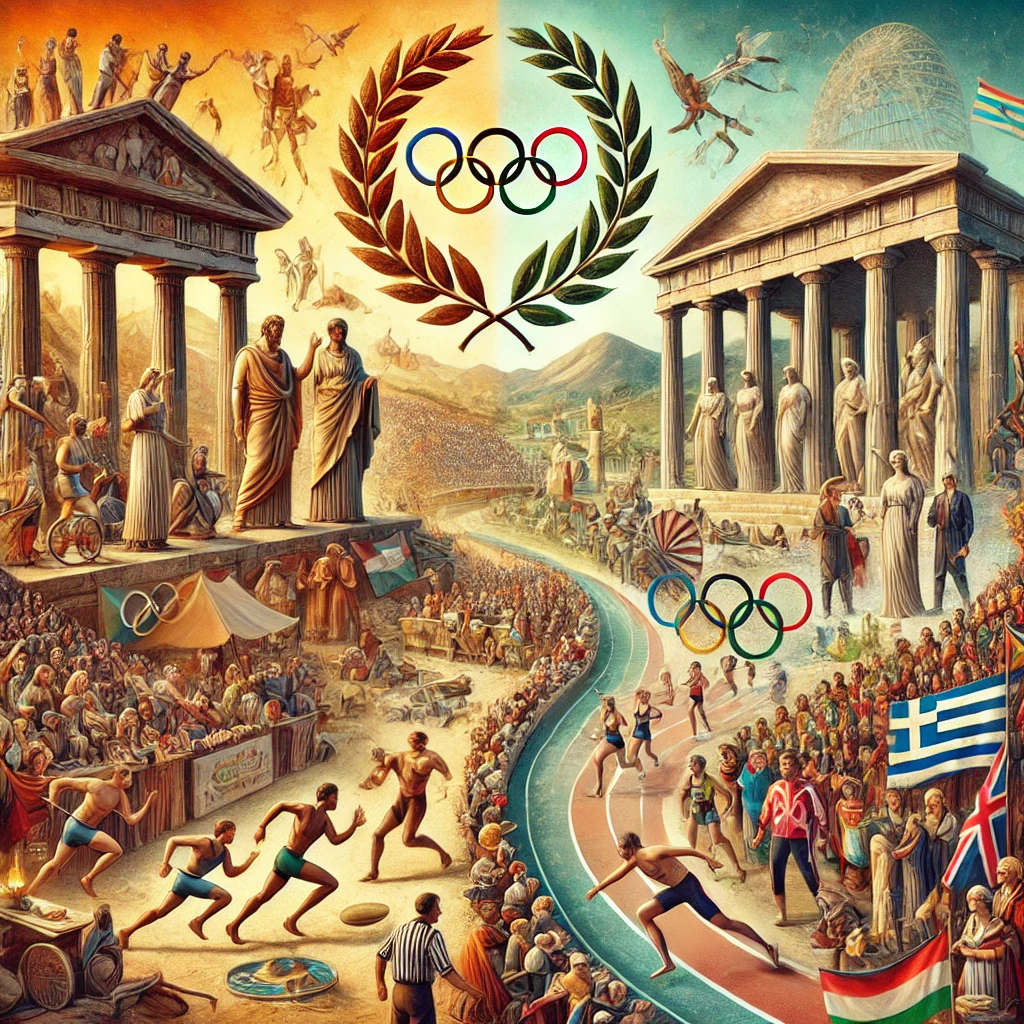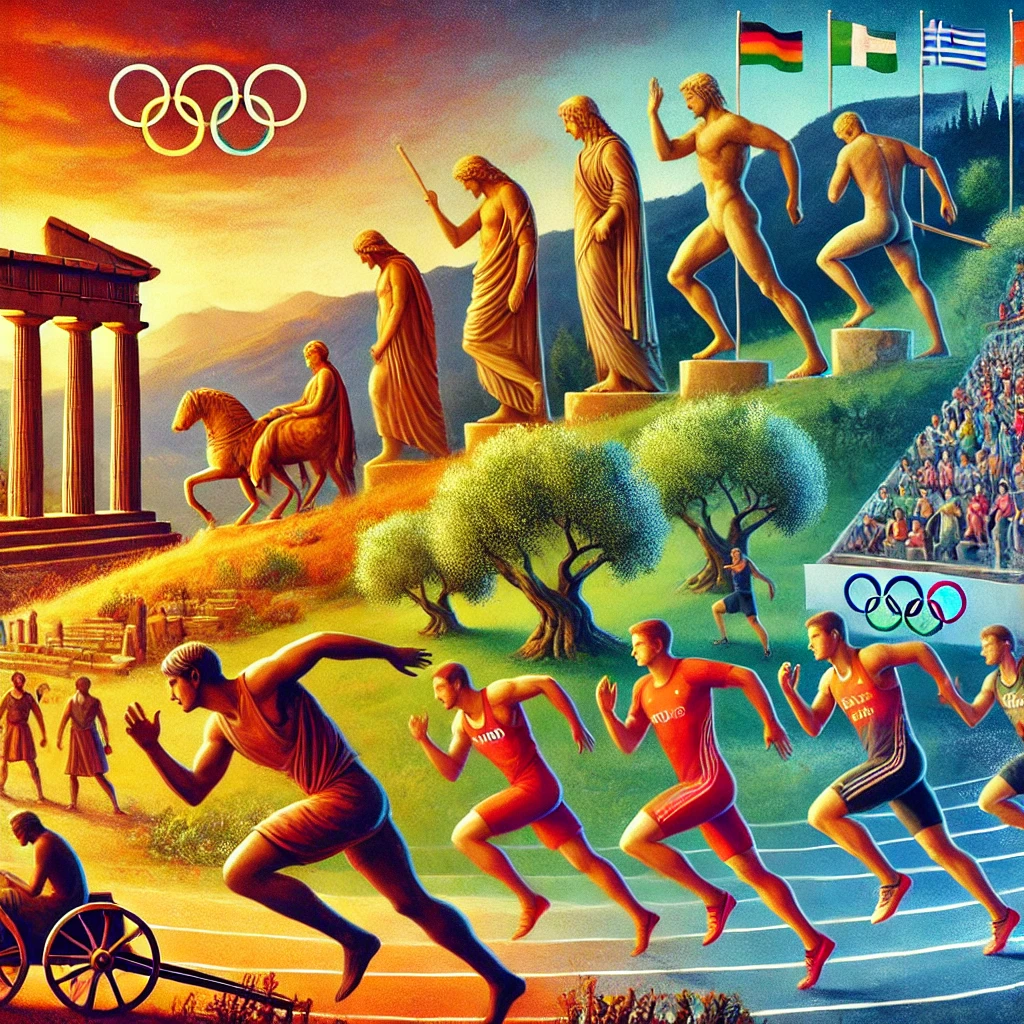Introduction: The Olympic Games, known today as the pinnacle of global sporting excellence, have a rich and storied history that spans thousands of years. From their humble beginnings in ancient Greece to their transformation into the modern international spectacle we know today, the Olympics have always been a celebration of human achievement, competition, and unity. This article explores the origins of the Olympic Games, their evolution over the centuries, and their enduring significance in the 21st century.

The Origins of the Olympic Games in Ancient Greece: The Olympic Games were first held in 776 BC in the rural town of Olympia, Greece, as part of a religious festival honoring the Greek god Zeus. This inaugural event marked the beginning of what would become one of the most revered traditions in ancient Greek culture. The inception date of 776 BC was so significant that it became the basis for the Greeks’ earliest calendar, where time was measured in four-year increments known as Olympiads.
The Significance of Competition in Ancient Greek Culture: For the Ancient Greeks, competition was more than just a test of physical prowess—it was a path to excellence. The original Olympic Games featured only one event: a 200-yard dash. However, over time, the competition expanded to include a variety of events, such as boxing, chariot racing, and a unique footrace where participants wore a full suit of armor. These events not only showcased athletic skill but also embodied the Greek ideal of striving for greatness.
Cultural and Artistic Competitions at the Olympic Games: In addition to athletic events, the Ancient Greeks also held contests in music, singing, and poetry during the Olympics. These cultural competitions were a testament to the Greeks’ belief in the harmony between physical and intellectual excellence. Works like Homer’s “Iliad” and Virgil’s “Aeneid” capture the spirit of these contests, highlighting the importance of creativity and expression in Greek society.
The Rise of the Pentathlon and the Brutal Pankration: Among the most popular events in the ancient Olympics were the pentathlon and the pankration. The pentathlon, a combined event of running, jumping, wrestling, javelin throwing, and discus hurling, was a true test of an athlete’s versatility and endurance. The pankration, on the other hand, was a no-holds-barred fight where only biting and eye-gouging were prohibited, ensuring that only the toughest and most skilled competitors emerged victorious.
Famous Ancient Olympic Champions: The ancient Olympics produced many legendary champions, such as Coroebus, a local baker who became the first Olympic victor in 776 BC. Another famous figure was Orsippus of Megara, who, in 720 BC, discarded his loincloth during a race to run unimpeded, thereby starting the tradition of competing in the nude. These athletes became heroes in their time, celebrated for their strength, agility, and determination.
The Decline and Revival of the Olympic Games: The ancient Olympic Games came to an end in 391 AD when the Christian Roman Emperor Theodosius banned pagan practices, including the Olympics. However, the spirit of the Games could not be extinguished. Nearly 1500 years later, in 1896, the modern Olympic Games were revived in Athens, Greece, bringing together athletes from around the world to compete on a global stage.
The Modern Olympic Games: A Global Celebration of Excellence: Today, the Olympic Games are held every four years, alternating between the Summer and Winter Games. They bring together thousands of world-class athletes from over 200 countries, uniting billions of fans worldwide in a shared celebration of human achievement. The Olympic motto, “Citius, Altius, Fortius” (Faster, Higher, Stronger), continues to inspire athletes to push the limits of what is possible, embodying the enduring legacy of the ancient Games.

Conclusion: The Olympic Games have evolved from a small religious festival in ancient Greece to the world’s foremost sporting competition, celebrating excellence, unity, and the human spirit. As we look forward to future Olympics, we remember the rich history and tradition that have shaped this incredible global event, and we continue to honor the legacy of those early athletes who competed for glory in the shadow of Mount Olympus.